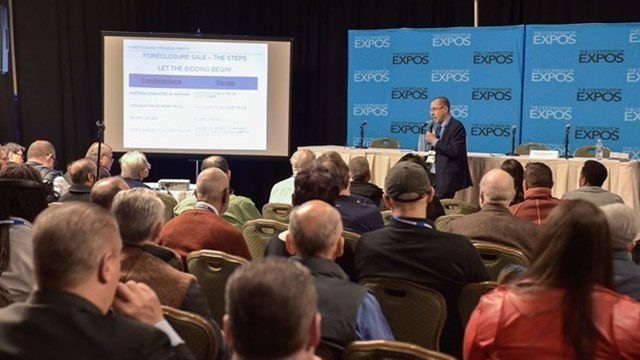One of life's most basic necessities is to have a roof over one's head. In an apartment building,while the roof may be a dozen stories above your home, it is still one of the most fundamental parts of the building. If the roof is not properly maintained, it can lead to problems that affect dozens of apartments and even threaten the integrity of the entire building structure. If attention to detail is not paid in the early stages of a roof problem, legal problems can result, which may pose a threat to the financial stability of the building as well.
Because the roof is such an integral part of your co-op or condo, it is imperative that boards proceed with caution when it comes to making decisions about roof maintenance and repairs. An experienced architect or engineer should always be called in to analyze the problem before any roofing work is undertaken. And an experienced contract lawyer should be hired to help with contract negotiations before anything is signed.
Hiring Considerations and Warranties
One of the biggest mistakes boards can make is to be penny wise and pound foolish about hiring roofing contractors. First, the board should not necessarily hire the contractor who gives the lowest bid, especially if it is significantly lower than the others. This can be a sign that the contractor has underbid and may not really be able to complete the job for the price quoted. Second, there is nothing to prevent the board from negotiating a better price with a firm that gave a higher bid. Third, be sure to get and check references for all contractors being considered by calling co-ops or condos they have actually done work for.
Before hiring a firm, look at the types of warranties they offer. If your building is replacing the entire roof, the contractor will most likely install a roofing system manufactured by a roofing company, which should come with a long-term warranty. The contractor should offer its own warranty on the installation work itself. Both the manufacturer and the contractor should be checked to see how financially stable they are and whether it is likely that they will be in business down the road if and when a problem arises. Generally, the language in warranties is unchangeable; however, changes can be negotiated on occasion.
It is essential to get good professional advice on the work you plan to have done, so that you are sure it will be safe and sound, and that it is the best alternative for solving the problem. The contracts for roof work, which should be drafted by an attorney who knows this area of the law, should call for an architect or engineer to draw plans for the work that is to be done and to examine it before the roof is sealed up. Thus, if any flashing is to be installed, you will know that a professional has checked to see that it is there and that the work conforms to the plans.
Insurance and Liability Risk
You want to be sure that the contractor will provide adequate crews, complete the work on time and still be in business to honor warranties. Check to see that you receive certificates showing insurance of the kind and in the amounts you requested in the contract. These documents should list the same name for the contractor as is stated in the contract.
Many co-ops complain about contractors using subcontractors without the board's knowledge or consent. This can be a tremendous added liability risk to the building. If any of the subcontractors' employees are injured, they can sue the building even if the board was unaware that a subcontractor's employees were working there and whether or not they were insured. Subcontractors can also file mechanic's liens against the building. These potential problems can be minimized by contract provisions either precluding the use of subcontractors altogether or allowing only those approved by the board. Some boards require the contractor to agree to open his books and records upon request in order to verify the employee status of the workmen.
Penthouse Problems
Shareholders living in penthouses can present some challenging issues for co-op and condo boards undertaking roof repairs. Often they regard the roof as their own property, when in most cases, they only have the right to use it. This means that if they have erected a deck, the board has the right to ask them to remove it at their own expense to have work done. The board can ask that items be removed temporarily or permanently for repair work. This does not always sit well with shareholders and often leads to litigation.
To avoid this type of problem, the board must be consistent in its dealings with shareholders. Don't allow an owner to build a deck or anything else on the roof without board approval. If roof work is required and it is the shareholder's responsibility to remove decks or other appurtenances, the board must stick to its guns and not back down. If the board agrees to pay for such a removal in one instance, it will probably have to do the same in the next. In some cases, boards may agree to share the cost with the unit owner in order to be more fair. Boards should routinely follow the proprietary lease when determining who is responsible for what. As a courtesy, they should forward copies of decisions and plans to shareholders that will be directly affected by the work, in order to avoid surprise litigation once work has begun.
In one case, a board wanted to have coping and parapets re-done and the penthouse owner thought the material selected was an eyesore and sued the co-op. In order to get on with the job and put a stop to the costly suit, the case was eventually was settled and a different material was used, but only after a lot of money was spent on litigation. By initiating a dialogue early on with all shareholders who will be directly affected by the project, the board stands a better chance of reaching an understanding with all parties involved.
Overall, the best way to avoid problems is to draw on the expertise of various professionals and consultants to advise you on the work you intend to have done. Board members or managing agents can check the contractor's and the manufacturer's references. An attorney can advise you on the contract terms to protect the co-op's interests. An architect or engineer can advise on whether the repair or replacement would be appropriate. Having the job written up clearly in a contract and approved by not only the board, but also the building's professionals, will help prevent problems during the process and further down the line.
C. Jaye Berger is an attorney in New York City who specializes in building construction, real estate, environmental law, bankruptcy and litigation.







Comments
Leave a Comment